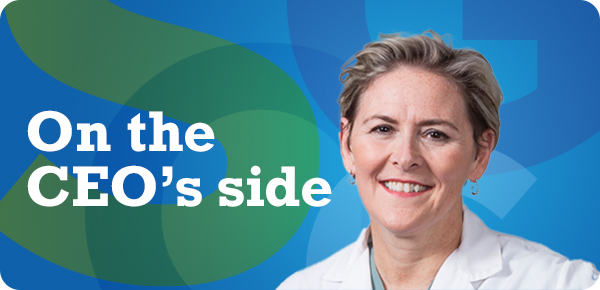Reflective Practice: Our Notorious Section 3 Credits…

What a wonderful way to start our academic year by announcing that our fantastic professional development team has spent the summer planning its future. First, let me tell you that the stars are definitely aligned for a review of our educational products. The multitude of Zoom events, where no one listens and everyone spends their time on their phones, has set the stage. It’s better to skip the post-test…
To better understand our service offerings, I participated as a learner in our two extraordinary master classes at the ACSC in June in Edmonton. Like all of you, I was convinced that I wouldn’t learn much—after all, I work (albeit less than before) in a tertiary center where simulation learning opportunities abound.
My greatest surprise was discovering a safe space where we are all equal, with our instructors being so dedicated and attentive. These individuals work in our major Canadian academic centers and do not hesitate to place themselves on the same level as the group, sharing their anecdotes to open those challenging doors of our ego—the barriers that make us resist sharing the joy of learning together and revising our techniques. Indeed, ERAS recommendations deserve discussion and revision. We have all been caught with our heads in the basin after a descent stop and are not too comfortable retrieving the feet first. Yes, it works! Are you truly up to date with the new recommendations for repairing fourth-degree tears or how to handle the Kiwi suction cup with the ease of a forceps, because it’s so much easier to manage?
The reorganization of teaching programs means that even academics are increasingly alone in their duties when on call at the front. Yes, we need to revisit the classics. Staff should not be wondering how many years it has been since we last delivered a breech presentation when there are no other options. I must admit that I personally enjoyed these training days so much that I am now fully convinced that they should be mandatory every 2 to 3 years. This would prevent us from discovering that we might sometimes be out of sync with the recommendations. These are also the sentiments I shared during my meeting with the new CEO of the Royal College, Dr. Christophe Watling, neurologist, as each of our specialties cannot justify its Section 3 credits in the same way.
Surgical specialties now increasingly face impostor syndrome, where our younger practitioners lose confidence, especially when they go to rural areas due to the low incidence of complications or the inability to operate if they stay in urban areas.
In this regard, our educational products are impeccable: AVB (Assisted Vaginal Birth), EOS (Enhanced Obstetrical Skills) and ALARM (Advances in Labour and Risk Management). The latter should not be confused with Ampro, which does not belong to the SOGC but to Salus. We have convinced the College of Family Physicians to train all family medicine residents since ALARM is now mandatory. It is time to take action with OBGYN residents.
We will begin discussions with our subspecialties on the best way to maintain our surgical skills, especially when working in a new hospital or private clinic that we do not know.
I cannot conclude this “Ode to Erudition” without thanking our EXCEPTIONAL and generous instructors; they know everything, they are on the ground and they do this to improve women’s health. Thank them on behalf of your patients because they make a significant difference! Personally, I was thrilled to participate and look forward to returning!
My next step: taking the ALARM course!
Want to become an instructor? We have a place for you! And you know what? We have a lot of fun at SOGC, especially when learning new things. We look forward to seeing you!
AVB
Instructors:
Dr. Kim Butler, Dr. Sebastian Hobson, Dr. Jocelyne Martel and Dr. Nirmala Chandrasekaran.
EOS
Instructors:
Dr. Kim Butler, Dr. Sebastian Hobson, Dr. Jocelyne Martel, Dr. Anita Harding and Dr. Cathy Cowal.

Dr. Diane Francoeur
FRCSC, MHCM, ICD.D
Chief Executive Officer
